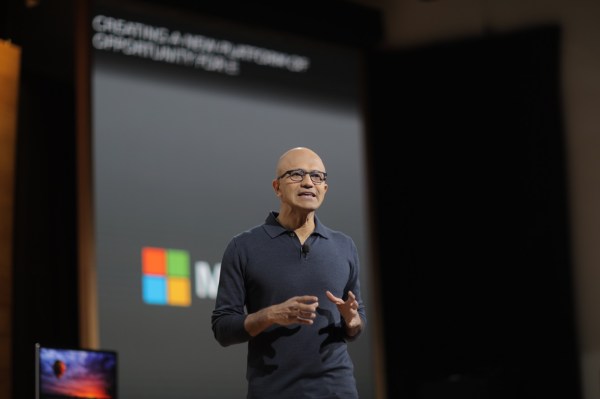Slowly but surely, the tech world is reacting to a sweeping executive order signed by Trump on Friday that closes the United States’ borders to refugees and citizens from a number of countries. Some have shared personal stories or reflected on the ways in which such policy will negatively impact the Silicon Valley, where so much of the work force has immigrated from around the world.
Google’s Sundar Pichai and Facebook’s Mark Zuckerberg have expressed various levels of concern about the action, with the former recalling employees in an attempt to get them back into the US before the ban restricts their re-entry. Microsoft was on the list of companies that offered an official statement on the matter, telling TechCrunch earlier today,
We share the concerns about the impact of the executive order on our employees from the listed countries, all of whom have been in the United States lawfully, and we’re actively working with them to provide legal advice and assistance.
Now two of the company’s top executives have weighed in on the matter. CEO Satya Nadella took to LinkedIn to share a memo sent by President and Chief Legal Officer Brad Smith to the entire Microsoft staff.
“As an immigrant and as a CEO,” Nadella explained in his post, “I’ve both experienced and seen the positive impact that immigration has on our company, for the country, and for the world. We will continue to advocate on this important topic.”
Smith’s memo offers even more detail, addressing the letter specifically to employees and their family who are citizens of Syria, Iraq, Iran, Libya, Somalia, Yemen, and Sudan, the seven countries named in the order. According to Smith, the action potentially applies to at least 76 known Microsoft employees, who are from one of the seven countries, all of whom have been contacted by the company.
Smith praises Nadella’s past discussion of the importance of immigration, adding,
As a company, Microsoft believes in a strong and balanced high-skilled immigration system. We also believe in broader immigration opportunities, like the protections for talented and law-abiding young people under the Deferred Access for Childhood Arrivals (DACA) Program, often called “Dreamers”. We believe that immigration laws can and should protect the public without sacrificing people’s freedom of expression or religion. And we believe in the importance of protecting legitimate and law-abiding refugees whose very lives may be at stake in immigration proceedings.
Smith also adds, “We believe that these types of immigration policies are good for people, good for business, and good for innovation.”

